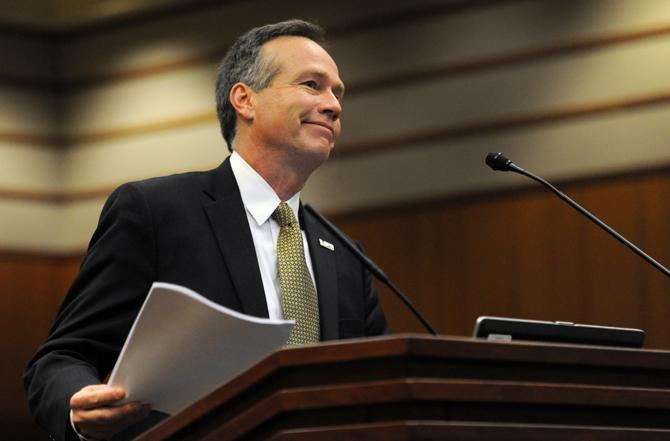Sixty percent on an assignment means a “D” — one point above failure.
According to a survey compiled this year, only 60 percent of LSU students graduated from LSU within a six-year time frame.
While at first I was shocked by the four-year graduation percentage — 29 percent — I recognize that with programs such as human resource education, engineering and architecture, we’re bound to have a number of our 22,000 plus undergraduate students requiring more than eight semesters to complete their courses.
The athletes are also to be considered. I’m sure many are tempted to take the minimum number of course hours each semester to ensure they have time to train and compete. Louisiana loves its sports because they’re entertaining, inspirational and get both locals and tourists to spend money. But while it’s understandable that athletes would want to spend as much time in college, they can’t be the entire reason for this large disparity in numbers.
Still, 40 percent of students aren’t graduating in six years.
I would like to see more people earning college degrees. Nowadays, a degree seems less like something exemplary and more like something one is expected to have.
It’s common knowledge that the more educated a populus is, the wealthier and more stable it is. And, as anyone with at least the mental capacity of a 7-year-old can see, Louisiana isn’t the wealthiest of states.
As of July, the Supplemental Nutrition Assistance Program, the program that grants food stamps, aided 19.5 percent of Louisiana’s population.
That’s 878,146 people.
Obviously, not everyone has buckets of cash, a decent IQ or a home environment that supports schooling.
I’m not about to propose college is the best place for everyone either. However, if a person makes it to this stage, I want them to earn their degree.
Let’s look at the graduation rates of University of California, Berkeley. It hosts roughly 25,000 undergrads and has a decent athletics program, so it’s fairly similar to LSU. Its 4-year and 6-year graduation rates are approximately 70 percent and 90 percent, respectively.
Berkeley earns its “A.”
It would be reasonable for one to suggest the locales of LSU and Berkeley make a difference, be it because of the states’ economic budgeting, the demographics of student wealth, the style in which the universities are run, etc.
If that were the case, LSU would be in luck. President F. King Alexander was previously positioned at California State University, Long Beach, so he should have insight on how to improve the University’s graduation rates.
Yet the graduation rates at CSULB are grim. Only about 12 percent of students graduate within their first four years, yet CSULB gets pretty close to LSU in the 6-year term with about 54 percent graduating.
The Faculty Senate thought CSULB’s stats were so abysmal, it listed the picking of our new president from a college with these rates as a reason for giving the Board of Supervisors last March a vote of “no confidence” in choosing the new LSU System president.
So, the question is, will the LSU system be addressing this in the next few years, or is it of no concern?
This is not an issue that will fix itself. LSU has had either negative or less than 1 percent improvement of the 6-year graduation rates each year since 2001.
I ask the LSU community to make an effort of looking into why this is.
I also want to remind our lovely freshmen this is a time in their lives when they will be in all-out academic warfare. They will be running full charge into the night with a highlighter in one hand and a fresh can of Red Bull in the other. They will have to slay exams, massacre pop quizzes and feast upon month-old packages of beef- and chicken-flavored ramen.
And after these next four or six years, they will have earned a life badge that will serve them for years to come — granted, if LSU can keep its act together.
Opinion: LSU President may have to get creative
September 3, 2013
LSU President and Chancellor F. King Alexander smiles at a comment from the Board of Regents on Aug. 21, 2013 in the Louisiana Purchase Room located in the Claiborne Building in Downtown Baton Rouge.





